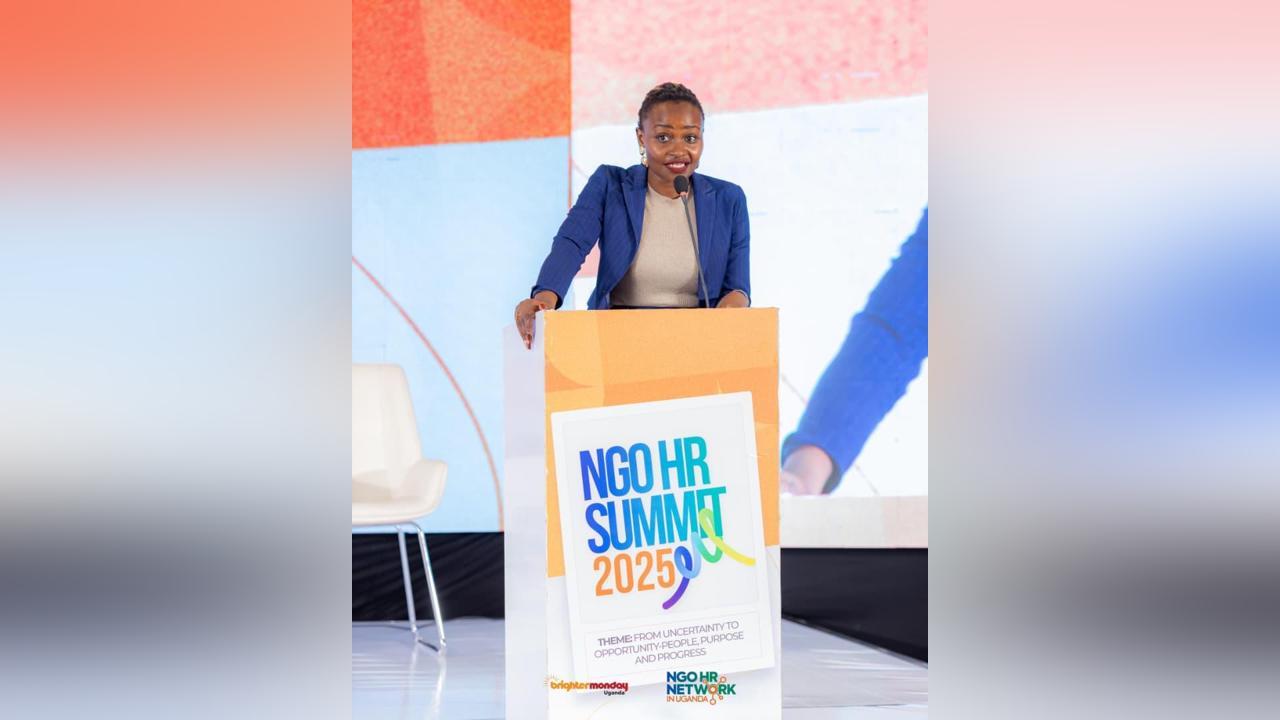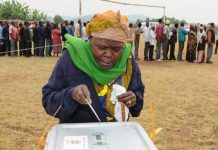Africa-Press – Uganda. Human resource leaders and development partners have called for deeper collaboration to address youth unemployment and promote dignified work opportunities in Uganda’s NGO sector.
The call was made on Friday during the NGO HR Summit 2025 held at Royal Suites Bugoloobi under the theme “From Uncertainty to Opportunity – People, Purpose and Progress.”
The summit was organised by BrighterMonday Uganda in partnership with the Mastercard Foundation under the Young Africa Works strategy.
Pamela Kabahesi, Country Programs Lead at BrighterMonday Uganda, said the partnership is driven by the need to create meaningful and dignified employment for the country’s youth.
“How do we work together to solve the employment challenge for the youth, but also ensure that the youth we place in employment are dignified and fulfilled?” Kabahesi said.
“Employment is not just about wages or having an address. It must have a face a dignified and fulfilling one.”
Kabahesi stressed the importance of nurturing young talent and supporting graduates to build careers that allow them to grow into leadership roles.
“Uganda has the second youngest population in Africa,” she noted. “How do we nurture talent as they enter the workspace, help them navigate the ladders and ultimately make it to the top? These young people are our future leaders.”
She further emphasised the need for alignment between employers and job seekers.
“Many graduates lack soft skills employers expect can you keep time, articulate your point? On the other end, employers must nurture and mentor them. If both sides speak the same language, placement becomes easier.”
Kabahesi added that modern HR practice requires empathy and technology.
“HRs must be able to mentor, deal with different kinds of people and also use available technology to deliver efficiently,” she said.
Emily Aneno Byaruhanga, Chairperson of the NGO HR Network, highlighted the changing demands of HR leadership and workplace culture.
“Recruitment should not just be about hiring, it should be about nation building,” she said. “Performance management shouldn’t just be ticking boxes. It should be conversations of mentorship and leadership.”
She said mental health must now be treated as a priority in NGO workplaces.
“Mental health has ceased to be a background issue. Staff well-being is now a boardroom matter. Let us create cultures where people look forward to coming to work.”
Byaruhanga challenged HR officers to be accessible and progressive.
“Young HRs are not the next leaders — they are current leaders. Rise up and speak the language of the business,” she said.
Representing the Minister of Gender, Labour and Social Development, Commissioner Zakari Kansiime applauded the partnership and called for stronger systems to support decent employment.
“Our shared challenge and opportunity is to convert our young population into a productive workforce,” Kansiime said. “When we take care of people, we deliver impact and sustain missions.”
He urged NGOs to uphold labour standards, especially during operational disruptions.
“Compliance may stop work temporarily, but fairness must never be restricted,” he said. “Employers should maintain open communication with staff and avoid arbitrary decisions.”
Kansiime pledged greater collaboration with the NGO sector to build capacity, promote mental wellness, and strengthen labour compliance and skills development.
Xenia Wichira, Country Director at BrighterMonday Uganda, said the organisation has evolved from a job-listing platform into a full HR solutions partner aligned with the changing world of work.
“It is an honour to finally make a concept a reality,” Wichita said. “We are happy to support the NGO world. There is so much happening in the sector, and today we hope to understand how we can work together and learn from each other.”
She emphasised that modern employees are increasingly selective about where they work and expect mentorship and a supportive culture, a shift employers must recognise.
“This generation interviews employers too,” she noted. “They want to know who they will report to and whether that person is a mentor. The world of work has changed, and we have pivoted with it.”
For More News And Analysis About Uganda Follow Africa-Press






